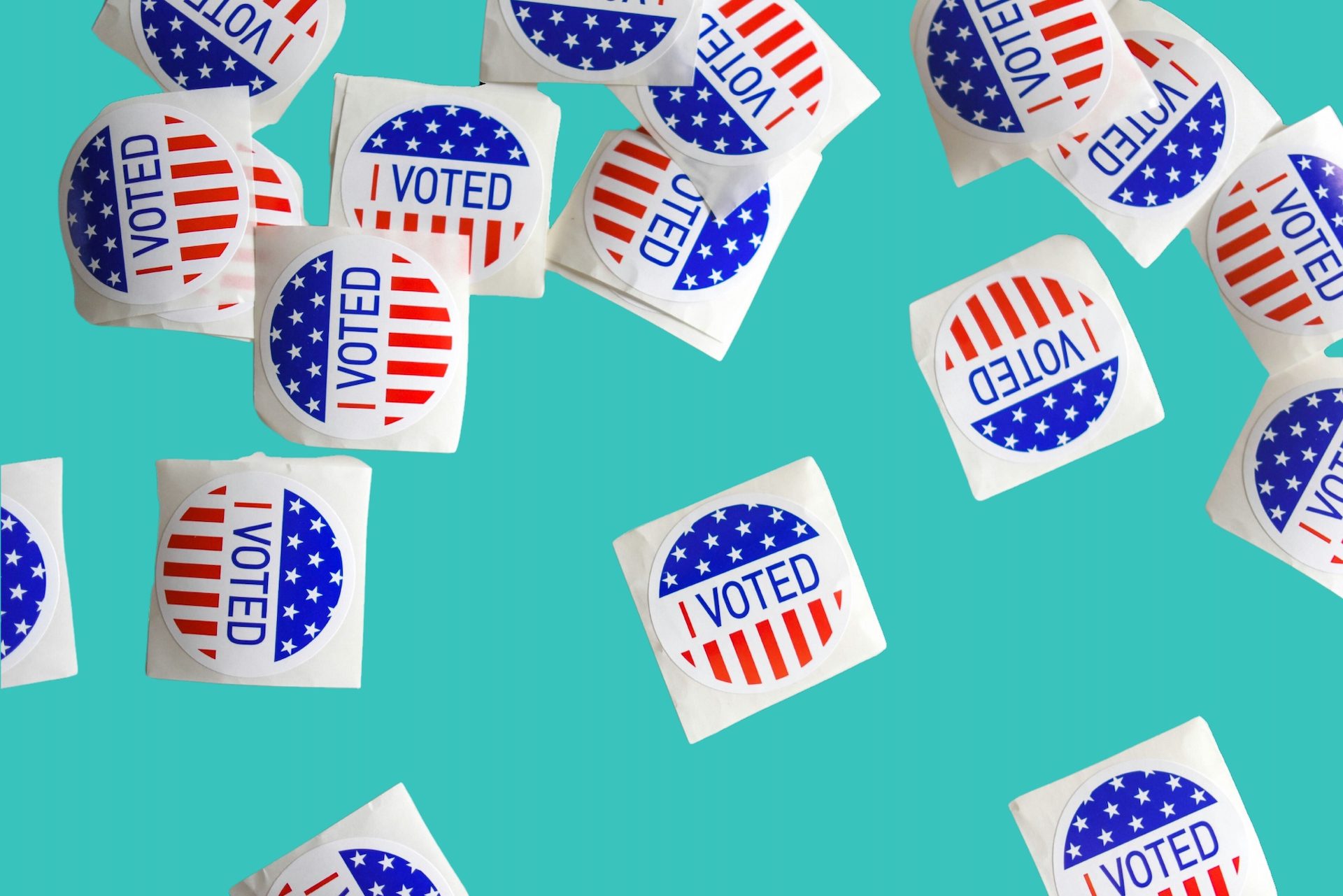 Borderless Magazine
Borderless MagazineFrom how to register to vote to who can vote, we answer your questions about voting in the presidential election.
After this week’s presidential debate between candidates Kamala Harris and Donald Trump, many people in Illinois are thinking about how they will vote. But voting can be intimidating and frequently challenging, especially for first-time voters.
In Illinois, one in seven residents is an immigrant. More than half of these immigrants are naturalized U.S. citizens eligible to vote.
Borderless has compiled this guide to help voters navigate registration, understand their voting rights, and resolve any issues they may experience at the polls.
Registering to Vote
In Illinois, to register to vote, you must
- be a U.S. citizen
- be a resident of Illinois and your election precinct at least 30 days before the next election
- be 18 years old or older on the date of the next General Election
You cannot
- have a Green Card or other non-citizen immigration status
- be serving time in prison or jail for a conviction of a crime (Learn more about your rights if you’re voting with a criminal record)
- have voted in the same election somewhere else or claim the right to vote anywhere else
How do I register to vote?
In Illinois, you can register to vote in person, by mail or online.
Registration deadlines for the November election are Nov. 5 for in-person registration, Oct. 8 for registering by mail, and Oct. 20 for online registration.
Voters may register in person at an early voting site or their election day polling place with two forms of ID, one with a home address. Those may include:
- Current and valid photo ID
- Utility bill
- Bank statement
- Government check
- Paycheck
- Lease or contract for residence
- Student ID and mail addressed to voter’s residence
- Government document
Remember that identification is not required to vote at the polls in Illinois, although you will be required to verify your signature. But if you register to vote on election day, you must bring it.
How do I check if I am registered to vote?
You can check your registration status online using your name, date of birth, and address. Confirm your registration on the Illinois government elections website.
News that puts power under the spotlight and communities at the center.
Sign up for our free newsletter and get updates twice a week.
What are we voting on in November?
Illinoisians will be voting on elected leaders, senators, House representatives, and judges. Use Ballotpedia’s Sample Ballot tool to see what the ballot will look like before Election Day.
Ballotpedia also has a comprehensive list of everyone on the ballot and their stances, along with the three ballot measures Illinois residents will be voting on this year.
When and where can I vote?
Illinois polling places will be open on Election Day, Tuesday, Nov. 5, from 6 a.m. to 7 p.m.
Use the Illinois State Board of Elections website’s Polling Place Locator to locate your closest vote center or polling place. (A polling place is just for residents of a certain zip code, while a voting center serves a wide range of zip codes.)
How do I vote?
Voters can either choose to cast ballots through marking a paper ballot or using a touchscreen voting machine on Election Day. Here are things you should know:
- Paper ballot
- only available at precinct polling places
- voter inserts the paper ballot into the scanner
- Touchscreen voting machine
- available at every vote center
- all vote centers use touchscreen voting
- the machine prints out a paper ballot that the voter inserts into a scanner after completing the voting
- voters can cast their ballots in one of 12 languages: English, Spanish, Chinese, Hindi, Polish, Korean, Tagalog, Gujarati, Urdu, Arabic, Ukrainian and Russian
Can I vote by mail?
The deadline to apply to vote by mail for this Nov. 5 election is Oct. 31, 2024, by 5 p.m.
Read More of Our Coverage
Voter safety
Some voters face scary situations when voting. This can look like:
- aggressively questioning voters about their citizenship, criminal record or other qualifications to vote, in a manner intended to interfere with the voters’ rights
- falsely presenting oneself as an election official
- spreading false information about voter requirements, such as an ability to speak English, or the need to present certain types of photo identification
- displaying false or misleading signs about voter fraud and the related criminal penalties
- other harassment, particularly toward non-English speakers and voters of color
What should I do if I feel unsafe voting?
Here are some tips to follow if you witness or experience voter intimidation, compiled by the American Civil Liberties Union:
- if you fear imminent violence, call 911
- document what you saw or experienced: what happened, where, when, and whether any voters were deterred from voting
- call the Election Protection Hotline: 1-866-OUR-VOTE or 1-888-VE-Y-VOTA for help in Spanish
- call the U.S. Department of Justice Voting Rights Hotline: 800-253-3931
- talk to local and state officials (poll workers; your county clerk, elections commissioner, elections supervisor, or your state board of elections)
How do I know my vote will be counted?
With former president and current presidential candidate Donald Trump’s continuing false claims of voter fraud, some voters are concerned their ballots won’t be counted this election.
You can use a ballot tracker to track the status of your mail-in ballot if you voted in:
- Chicago
- DuPage County
- Kane County
- Lake County
- Will County
For other regions, call your local election office to check on the status of your ballot to ensure it was counted. If you voted with a provisional ballot, you can check the status at the Illinois State Board of Elections website.
If you vote in person, you will submit your ballot to the scanner to be counted at your polling location.
Can I vote if I have been convicted of a felony?
Voting rights for convicted felons vary from state to state.
In Illinois, individuals with felony convictions automatically regain their voting rights after their prison or jail sentence, per Article III, Section 2 of the Illinois State Constitution.
You can vote in Illinois if you previously served a felony prison sentence, are waiting for sentencing, or are in the midst of a trial.
You cannot vote if you are a convicted felon about to go to prison or are currently in jail or prison for a felony.
This story has been updated from a previous article.
This article is part of U.S. Democracy Day, a nationwide collaborative on Sept. 15, the International Day of Democracy, in which news organizations cover how democracy works and the threats it faces. To learn more, visit usdemocracyday.org.



